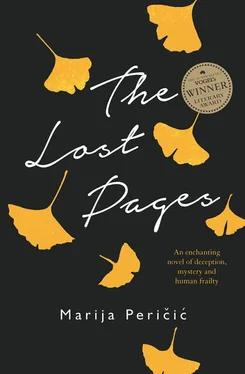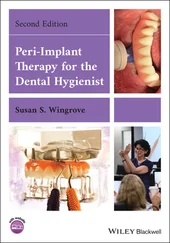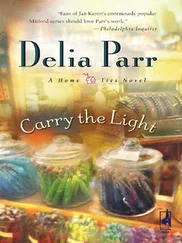He nodded to me and left.
My dreams were nothing but dead things now, yet my mind could not yet accept this. I floundered for words, but Anja broke in. ‘Max, tell me of yourself. You have been so unwell, I know. I hope you have made a full recovery.’
I cursed myself for not having prepared a cover story to account for the time I had spent in the asylum.
‘Yes, I was ill. Trouble with my leg, you know. It plagues me sometimes. But I am now fully recovered. Indeed, I am much stronger than ever before.’
I knew this was feeble.
Anja made a wry face and came over to where I stood. She took one of my hands. ‘Max,’ she said, ‘you know I was there. In Berlin.’
I could hardly make sense of her words.
‘Do you remember that night?’ she asked.
The details of the night in Berlin came back again and I could still feel the traces of their savagery pulsing through my body.
‘I have memories of it. But I could not say I remember what happened.’
‘Well,’ Anja said, ‘you broke into our apartment—we don’t know how you got in—and, well, you had a kind of fit.’
How shameful, I thought, for her to have witnessed this. I tried to pull my hand away from hers, but she held on.
‘It was Papa who found you. He could see you were in trouble, and he called the doctors. We were so afraid for you.’
‘So you knew where I was this whole time?’ I asked. ‘Why did you never visit me?’
‘But I did visit you. Only you didn’t know who I was. You were insensible—drugged, I suppose. And then, after I had seen you, well, I became a coward. I felt so ashamed for having been one of those who put you in that place. It wasn’t my intention! I thought it would pass in a day or two. And then when it took so long I thought you could never forgive me.’
‘Of course I forgive you! Anja, I love you. That’s what I came here to tell you. Forget Liška! I suppose you two are engaged.’
It was an effort for those words to pass my lips, and I had to avert my eyes from her nod of assent.
‘But I know I love you more than Liška does. I can give you everything you want. Everything! I will do anything for you. You are my queen.’
I turned my eyes back on her face, hoping, hoping against hope, though I knew all was lost. Her eyes were sad. She took up my other hand and held both of my hands together in both of hers. Her skin was as cool and soft as in my dreams.
‘Oh, Max, I love you, I do.’
And so I came to hear those words that I had longed for from the moment I first saw her so long ago. But to hear them like this—hollow, pregnant with rejection—was worse than not hearing them at all. I could hear her ‘but’ hanging in the air long before it reached my ears.
‘But, Max, my love for you is the love for a brother.’
I could not speak, and only nodded. I closed my eyes over the tears and heard her say, ‘I know this is not the love you want, and I’m sorry. But perhaps this love I can give you is a greater kind of love than the other.’
Was this true?
I turned from her and left the house without saying anything. There was nothing to say. I walked, I do not know where, with no objective other than to keep moving, to keep my muscles propelling my body forward with the same repetitive motion. The familiar buildings pressed in on me, I could feel them leaning over me, surrounding me. People passed by, someone called my name, and then the river was in front of me and I came to a stop. I looked along it, at the other bridges and the weight of all that water flowing quietly past, and my face there, quivering, on the moving surface.
A NUMBER OF PHOTOGRAPHS AND PHOTOGRAPHIC NEGATIVES were also uncovered among the Kafka papers. These have been dated, and range from the years 1908 to 1924. Unfortunately, many of them have been severely damaged and are decayed beyond the point of restoration.
Many of the photographs will be immediately familiar to Kafka scholars and enthusiasts, but some hitherto unseen images were also uncovered. Most of the photographs include Kafka, but there are several individuals who are yet to be identified. One photograph, which has been dated to 1911, is proving particularly challenging. It has sustained some water damage, but the image is still discernible. In the photograph, Brod is easily recognisable, and he is pictured with a group of young men whose names are not noted. A note on the back of the photograph, in Brod’s handwriting, is the caption: ‘Self-portrait 1910.’
During the processing of the papers, the image was sent to various international Kafka scholars [33] Professor Wilhelm Herrmann, Dr Helene Barbere-Flores, Professor Axel Stifter, Professor Eric Goldbaum and Dr Ben Staub.
to ascertain whether Kafka was present among the group. The response has caused some confusion, as various scholars have responded with conflicting identifications of Kafka. Professor Wilhelm Herrmann at Berlin’s Humboldt University and Professor Eric Goldbaum from Charles University in Prague have both independently identified all the men surrounding Brod in the photograph as Kafka. The matter has been referred to the forensics team for further investigation. The complete collection of images will be made available online.
I AM GRATEFUL FOR THE GENEROSITY OF THE AUSTRALIAN /VOGEL’S Literary Award and Allen & Unwin. I would especially like to thank Annette Barlow and Christa Munns from Allen & Unwin for their efforts in bringing this novel into the world, and also Ali Lavau for her insightful editing and Sandy Cull for the cover design.
I would also like to thank Alexandr Hartl for guiding me around Max Brod’s Prague and unearthing some interesting historical details. In my research for this novel I drew on Derek Sayer’s Prague, Capital of the Twentieth Century: A Surrealist History ; Gustav Janouch’s Conversations with Kafka ; and Josef Cermak’s Through Franz Kafka’s Prague .
Thank you also Annette Castillo, Brooke Silcox and Colin Harte for carefully reading the early drafts and offering such thoughtful suggestions and advice.
Most of all I am indebted to James R. Fleming. James, thank you for your endless encouragement, support and patience: without you, this novel would never have been written.
Marija Peričić lives in Melbourne, where she teaches English as a foreign language. The Lost Pages is her first novel.
This is a work of fiction. Names, characters, organisations, places and incidents either are the product of the author’s imagination or are used fictitiously. Any resemblance to actual persons, living or dead, events or locales is entirely coincidental.
First published in 2017
Copyright © Marija Peričić 2017
All rights reserved. No part of this book may be reproduced or transmitted in any form or by any means, electronic or mechanical, including photocopying, recording or by any information storage and retrieval system, without prior permission in writing from the publisher. The Australian Copyright Act 1968 (the Act) allows a maximum of one chapter or 10 per cent of this book, whichever is the greater, to be photocopied by any educational institution for its educational purposes provided that the educational institution (or body that administers it) has given a remuneration notice to the Copyright Agency (Australia) under the Act.
Allen & Unwin
83 Alexander Street
Crows Nest NSW 2065
Australia
Phone: (61 2) 8425 0100
Email: info@allenandunwin.com
Web: www.allenandunwin.com
Cataloguing-in-Publication details are available from the National Library of Australia
Читать дальше












